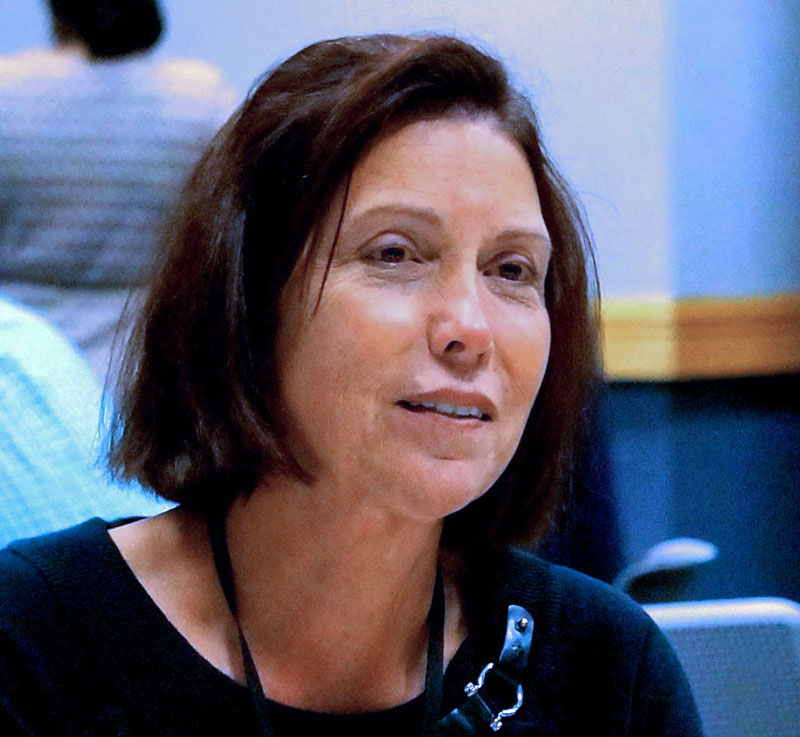Bauer Accounting Faculty Lead Data Analytics Conversation
Lecturer Ellen Terry Brings Experience from Microsoft, JP Morgan to Classroom
Published on August 24, 2017

Ellen Terry, a lecturer in Bauer’s Department of Accountancy & Taxation, brings industry experience into the classroom to give students competitive edge in the industry.
Companies are placing big bets on data and analytics, with trillions of dollars of value riding on the outcome. But a talent shortage is one of the main barriers to realizing potential.
Among the findings reported in a 2016 McKinsey Global Institute publication is that the biggest challenge for approximately half of executives surveyed across geographies and industries is finding the right people to integrate data and analytics into existing operations.
The undisputed urgency in the search for skilled employees is driving Bauer College to expand its class offerings. A key player in developing such courses is Ellen Terry, a lecturer in Bauer’s Department of Accountancy & Taxation who has a wealth of experience in Business Intelligence, Transformation and Analytics.
A former vice president in the Data Science Group at JP Morgan who also worked for nearly a decade for Microsoft, Terry collaborated with Professor and Department Chair Kaye Newberry and Michael Newman, clinical professor and Director of Accounting Programs, in developing graduate level advanced analytics courses at Bauer for accounting students and others.
“We decided to start with the end game,” Terry said. “What competencies do students need when they start with a company and get the opportunity to apply data science on the job? At JP Morgan, I had a good view of incoming capabilities. We on-boarded many diverse employees: some with degrees in data science, but most with a wide range of degrees, from biophysics and mathematics to accounting and finance. The biggest challenge I saw was the ability to comprehend holistic business architectures and integrate the intelligence pieces. The purpose of the Advanced Analytics Applications Lab is to give students the experience of working through this to close the gap.”
Students new to the field will take a pre-requisite to the advanced course, but as Bauer reaches out to include “working professionals in the community, business partner new-hires, and students from other schools, we will see more varied backgrounds – some with data science degrees already,” Terry said. Such qualified candidates will be allowed to skip the lower-level course.
This fall, students will work with Big Four accounting firms KPMG and Ernst & Young on projects that focus on assurance and tax. But they’ll be learning skills that transcend accounting, so Terry encourages students from other fields with strong math skills to attend.
The potential for jobs in data science, is enormous, encompassing a huge array of positions that are opening up as companies discover better ways to acquire and manipulate data at a breakneck speed.
“It seems like every decade brings a major technology-driven disruption. 2020 was the internet, 2010 was mobility, and 2020 will be artificial intelligence…and this one will probably be the most transformative yet,” Terry said.
“I can’t think of many job markets that won’t be impacted. It’s already happening with the big companies: banks, accounting firms, manufacturers, governments…are all busy transforming.”
“There’s an intense level of interest in people who can merge advanced analytics with a functional expertise,” she said. “This is a challenging and fun role – you really need a deep understanding of both, but the opportunities are limitless. These ‘hybrids,’ often lead data science projects to automate processes.”
The McKinsey Report estimates 2 to 4 million of what it calls “business translator” jobs will need to be filled over the next decade. Microsoft recently counted 1.5 million open job postings with the term “data science,” Terry said, “and we’re just getting started.”
Terry said she was honored to be asked to share details about how the school is developing its data analytics program at the Microsoft Academic Conference for Higher Education, which took place in June.
“After seeing what they’re doing in Redmond (Washington state home of Microsoft headquarters), I’d like to say this to the students: you are very lucky to be living in this era – the future is going to be amazing!” Terry said.